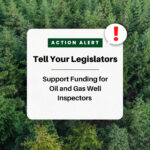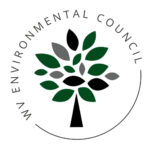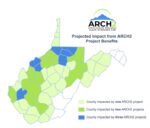- Share on Facebook
- Like
- Tweet
- Digg
- Del
- Tumblr
- VKontakte
- Buffer
- Love This
- Odnoklassniki
- Meneame
- Blogger
- Amazon
- Yahoo Mail
- Gmail
- AOL
- Newsvine
- HackerNews
- Evernote
- MySpace
- Mail.ru
- Viadeo
- Line
- Comments
- Yummly
- SMS
- Viber
- Telegram
- Subscribe
- Skype
- Facebook Messenger
- Kakao
- LiveJournal
- Yammer
- Edgar
- Fintel
- Mix
- Instapaper
- Copy Link
by Mary Wildfire
Many people are aware that the world’s climate is already changing due to greenhouse gases; scientists say the problem is becoming increasingly urgent. Now, suddenly we’re hearing about a new problem: Peak Oil. This refers to the point when we’ve used up half of all the world’s oil. Some geologists say we will hit the peak somewhere between 2003 and 2015. Once we pass that point, there will be less and less oil available, no matter how much we spend to extract what’s left.
Unfortunately, demand will not be static. The developed countries have not cut back on fossil fuel use despite the Kyoto protocol and worries about global warming. These countries (the US, Canada, all of Europe, Australia, New Zealand and Japan) have just under a billion people all together, while India and China have 2.3 billion between them. And the economies of India and China are growing much faster than ours. The oil won’t disappear overnight, but very serious problems will arise when the price doubles… and then doubles again.
It’s not just a matter of not being able to afford gasoline. Nearly everything we consume comes to us via truck. Fertilizers and pesticides are based on petroleum; so are plastics and many medicines.
What about alternatives? Natural gas is running out along with oil, and so is uranium (aside from all the other problems with nuclear power). Coal is more abundant in North America, but brings major problems with pollution and, especially with global warming. Some biofuels like ethanol from corn actually take more energy to produce than they yield. In any case, without oil to run our tractors and provide the basic feedstock for fertilizers and pesticides, it’s unlikely that we’ll have surplus crops, beyond what we need for food, to devote to energy production. As for the much-touted hydrogen economy, it’s a bit of a myth: it takes more energy to produce hydrogen than it yields, so while it will be useful as a means of storing and transporting energy, it is not a source of energy. And wind and solar power? We should be developing them as fast as we can, instead of subsidizing fossil fuels. But renewable energy sources are not as energy-dense as oil—they will not allow us to live in the luxurious and wasteful way (in terms of energy) to which we’ve become accustomed. Each year, we burn up fossil fuels that took a million years to accumulate.
Several recent books explore this situation. My favorite is Richard Heinberg’s The Party’s Over: Oil, War and the Fate of Industrial Societies, which lays out the case for Peak Oil in a clear, readable, logical and credible manner. I also like Heinberg’s follow-up book, Powerdown: Options and Actions for a Post-carbon World, which focuses on responses to the problem.
The most sobering thing in these books is the assertion that the Earth cannot support our current population of 6.4 billion without the huge boost provided by oil. If true, the implications are staggering.
What does all this mean to us in West Virginia? Since we have natural gas and lots of coal here, we might seem to be better situated than most of America. But we have to assume we won’t be able to keep these resources for our own use. Likely the gas will go quickly, and the coal may be used to replace the oil and gas previously used elsewhere to generate electricity. There is already talk of creating plants to produce liquid fuel from coal. The problem for us is that it will likely be cheaper and easier to burn the coal here and transmit the electricity to where it’s wanted, or turn it into liquid here rather than trucking it elsewhere to the liquefaction plant. These are dirty processes, and we already have some of the dirtiest air in the country because there are so many power plants already in this coal-rich region. We’re also already fighting over mining damage, especially mountaintop removal mining. An energy-starved America may also be less particular about enforcing environmental laws. Thus, we may end up paying a price, environmentally and in terms of health, for West Virginia coal to cushion the oil shock elsewhere.
When the fuel is gone, we’ll all likely depend on the sun and wind for our energy, much as our ancestors did 200 years ago. There are many ways in which they lived better than we do; this is not entirely something to dread. We may be glad, for example, to say goodbye to today’s frantic busyness, and information overload, and obsessive commercialism. Furthermore, we will have the advantage of knowledge and technologies our ancestors lacked. How well we live, though, will be partly a matter of how well we prepare now, while we still have the advantage of relatively cheap oil. That’s why we need to start discussing this problem.
Mary Wildfire is a former president of the West Virginia Environmental Council and an active member of the Concerned Citizens Coalition of Roane and Calhoun Counties.










